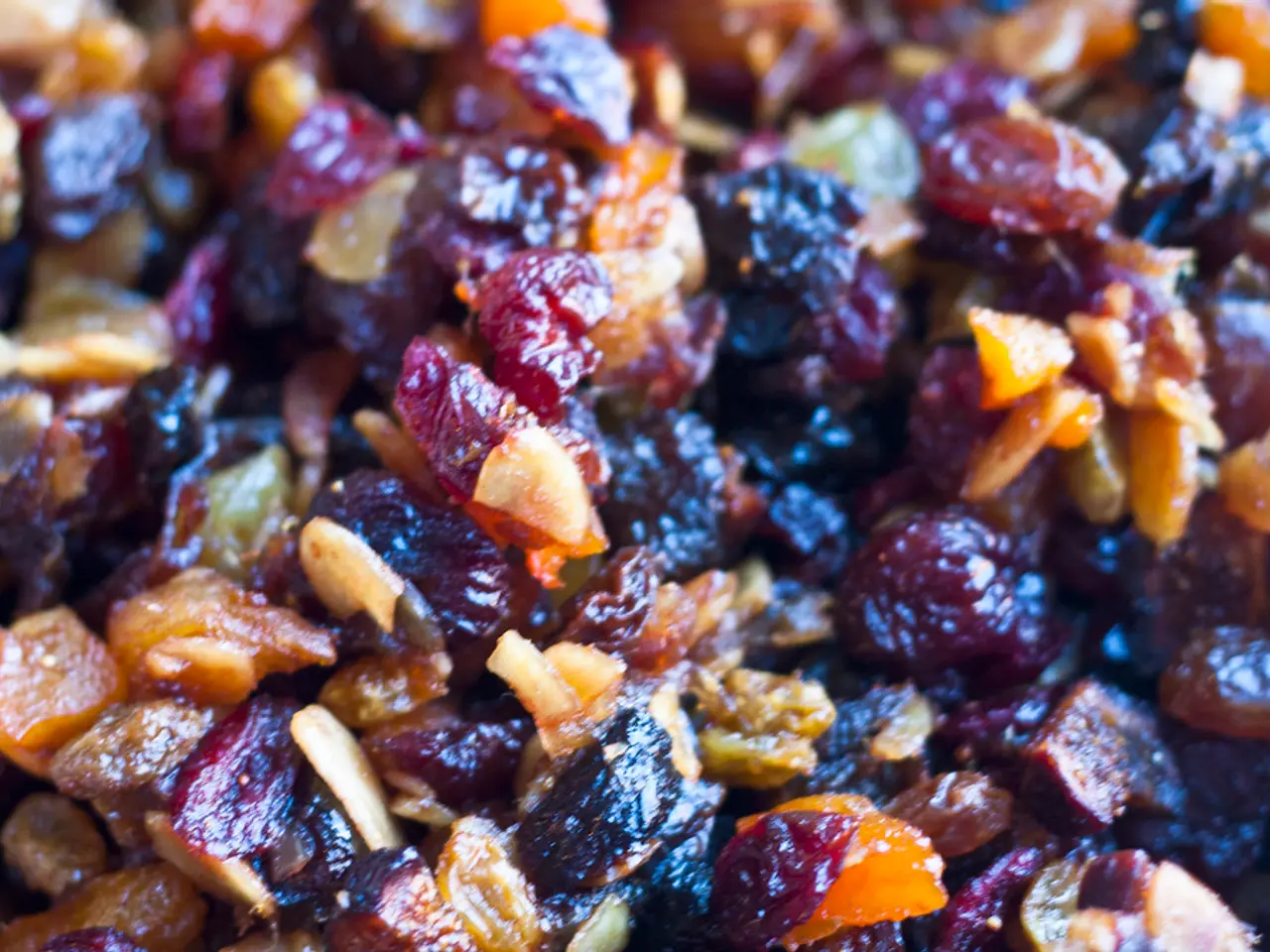Dead bacteria are being transformed into dog treats at a lab in Lisbon, hinting at potential future exploration of human edibles.
MicroHarvest Aims to Revolutionize Protein Production with Fermented Microbial Protein
MicroHarvest, a European startup founded by Katelijne Bekers and co-founder Luísa Cruz, is making waves in the alternative protein industry. The company, which specializes in the production of microbial protein from agricultural waste, is awaiting regulatory approval from the European Food Safety Authority (EFSA) to sell its products for human consumption.
Despite the lengthy and complex regulatory process, MicroHarvest remains optimistic about the potential for their products to be approved. The company has already achieved success in the pet food sector, demonstrating the palatability and preference of their microbial protein among pets.
The EU's regulatory framework requires thorough evaluation to ensure safety and compliance with food standards. However, the European Union has shown interest in fermentation technology, with recent funding initiatives to support its scale-up. This could potentially accelerate the development and approval of alternative protein sources.
MicroHarvest's fermentation process is estimated to slash land use by 99% and cuts CO2 emissions by over 70% compared to beef. The microbial protein produced by MicroHarvest contains around 60% raw protein, plus a mix of fibre, amino acids, and other nutrients. It is expected to be used in human snacks like protein bars, shakes, and ice cream.
The company is seeking Series B funding to open a new plant in 2027, with a planned capacity of 15,000 tonnes of product per year - 40 times its current output. Bioreactors like MicroHarvest's could be deployed pretty much anywhere there's a significant agricultural industry.
The future of fermented proteins as mainstream meals is uncertain, with the next few years revealing if these microbial powders are a fleeting fad or the future of food. However, MicroHarvest's success in the pet food sector and the record private investment and fresh EU funding suggest they are bubbling with promise.
The company faces challenges such as high production costs, sceptical consumers, and regulatory hurdles. Yet, with the growing demand for sustainable protein alternatives, MicroHarvest is well-positioned to make a significant impact in the industry.
Competition is fierce, with startups across the continent and beyond vying for a share of the market. However, MicroHarvest's location in Portugal, a country known for its strong biotechnology sector and talent pool, gives it a competitive edge.
As the regulatory approval process continues, MicroHarvest is pushing forward, planning to scale through the pet industry, having already launched a vegan dog treat made with microbial protein in partnership with VegDog. A 2022 study found that replacing just 20% of global beef consumption with microbial proteins could cut annual deforestation in half by 2050. With the potential to revolutionize the protein industry and address pressing environmental concerns, MicroHarvest is a company to watch.
Sources:
- MicroHarvest
- FoodNavigator
- Innovation Origins
- Euractiv
- Food Ingredients First
- The Spoon
- The Good Food Institute Europe
- The Guardian
- The Wall Street Journal
Science and technology play significant roles in MicroHarvest's mission to revolutionize protein production, as they employ cutting-edge fermentation technology to create microbial protein from agricultural waste. This advancement in health-and-wellness and lifestyle sectors could potentially introduce new food-and-drink options, such as protein bars, shakes, and ice cream, made with sustainable and eco-friendly ingredients. With the EU showing interest in funding initiatives for the scale-up of fermentation technology, the future of this European startup looks promising.




